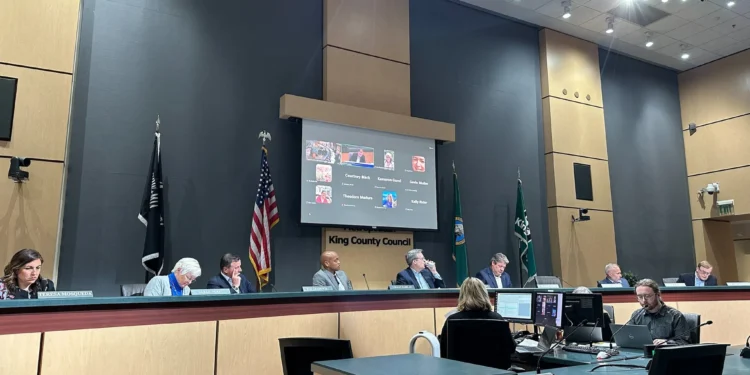King County moved forward with plans for a crisis care centre in Capitol Hill after a unanimous committee vote, despite residents and business owners raising transparency concerns about the project’s development process.
The King County Council Fiscal and Budget Management Committee approved the proposal for a facility at 1145 Broadway, adjacent to a brewery, hotel, and school. The decision came after public testimony that revealed divided community opinion, with some requesting a 90-day delay whilst others emphasised urgent need for the services.
Local business owners and residents have questioned King County’s transparency regarding the project, alleging officials have not been forthcoming about their intentions for the specific location. The concerns reflect broader tensions about how government agencies communicate with communities during facility planning processes.
Council members acknowledged the need for enhanced community engagement, noting that the process has included approximately 40 community listening sessions. They assured that community input would remain a priority throughout development, though critics suggest earlier engagement might have addressed location-specific concerns.
County Executive Shannon Braddock defended the facility’s importance, stating that “King County voters asked for urgent behavioural health care in every part of our region, and this site in Seattle is a leading example of how we’re delivering on that commitment.”
The Broadway facility represents one of five centres planned under the Crisis Care Centers Initiative, approved by 73 percent of Seattle voters in 2023. These centres will provide walk-in behavioural health and substance use care regardless of insurance status, addressing gaps in the current mental health system.
The 2027 opening timeline provides significant lead time for addressing community concerns whilst maintaining project momentum. Executive Braddock and Seattle Mayor Bruce Harrell have pledged collaboration with local stakeholders to ensure successful operation.
However, the transparency concerns raise questions about whether the extensive listening sessions effectively incorporated community feedback into site selection decisions. The gap between community outreach quantity and perceived transparency suggests communication challenges that extend beyond this specific project.
The proposal advances to the full King County Council for consideration on October 7th, with additional opportunities for community input. The council’s unanimous committee vote indicates strong institutional support despite neighbourhood concerns.
For Capitol Hill residents, the centre represents both needed mental health resources and concerns about neighbourhood impacts. The challenge lies in balancing urgent service needs with community integration and addressing legitimate concerns about government transparency in facility planning.






